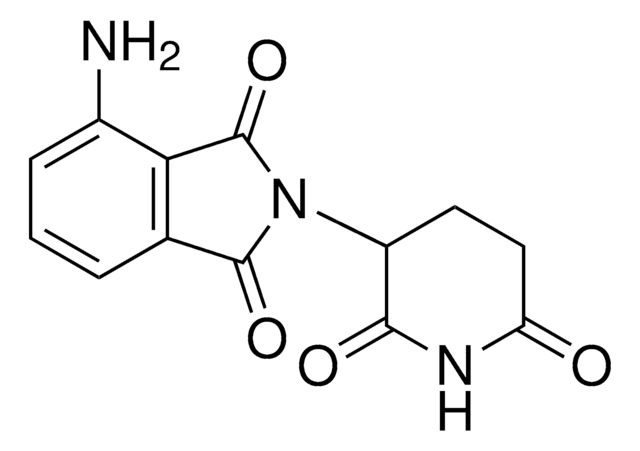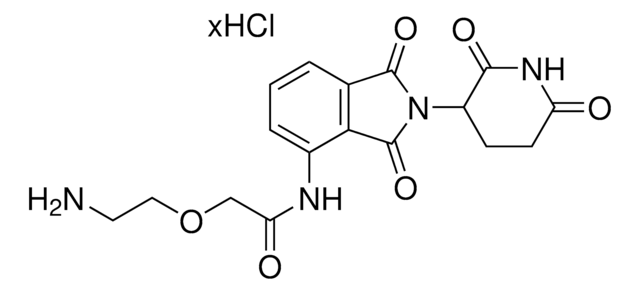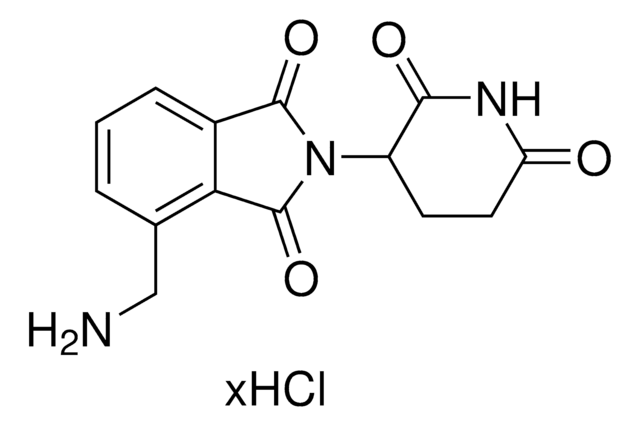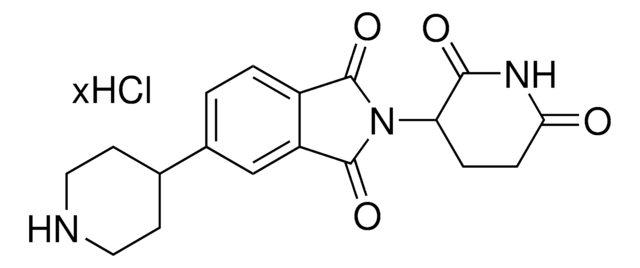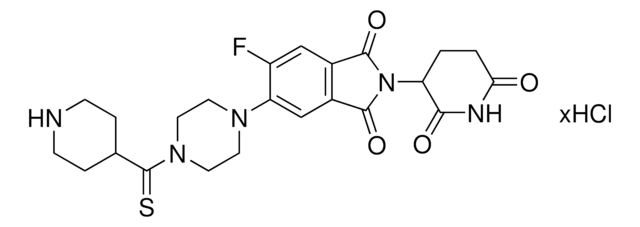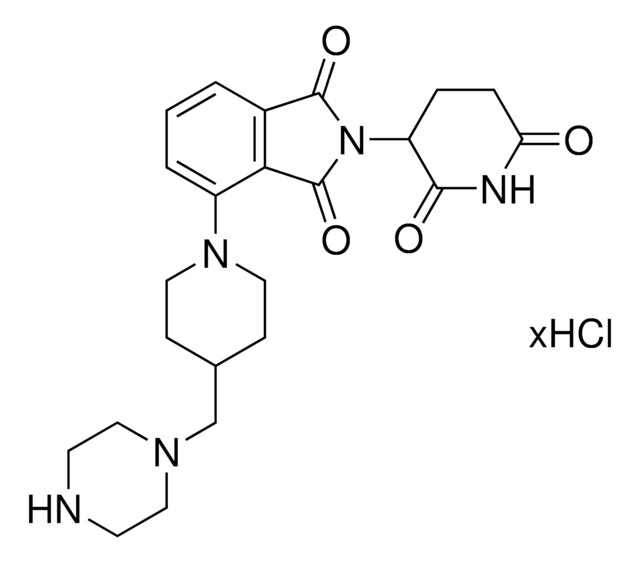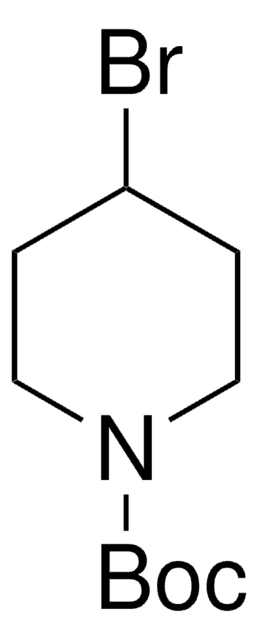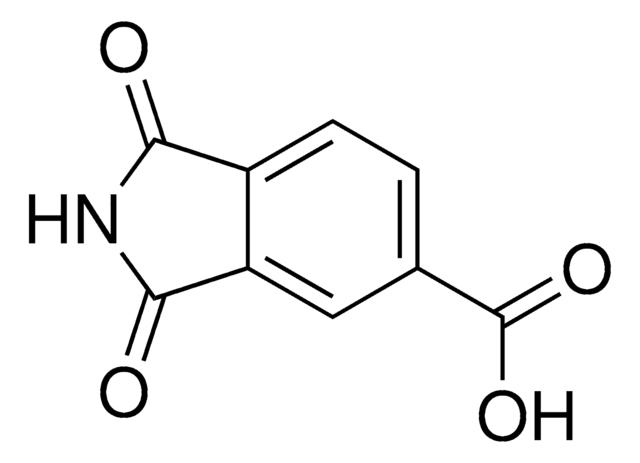929441
C5-Pomalidomide-piperazine hydrochloride
≥95%
Sinónimos:
2-(2,6-Dioxopiperidin-3-yl)-5-(piperazin-1-yl)isoindoline-1,3-dione hydrochloride
About This Item
Productos recomendados
ligand
pomalidomide
Quality Level
assay
≥95%
form
powder
storage temp.
2-8°C
SMILES string
O=C1N(C2CCC(NC2=O)=O)C(C3=CC=C(N4CCNCC4)C=C31)=O
Application
Technology Spotlight: Degrader Building Blocks for Targeted Protein Degradation
Protein Degrader Building Block
Other Notes
Legal Information
signalword
Danger
hcodes
Hazard Classifications
Repr. 1B
Storage Class
6.1C - Combustible acute toxic Cat.3 / toxic compounds or compounds which causing chronic effects
wgk_germany
WGK 3
flash_point_f
Not applicable
flash_point_c
Not applicable
Certificados de análisis (COA)
Busque Certificados de análisis (COA) introduciendo el número de lote del producto. Los números de lote se encuentran en la etiqueta del producto después de las palabras «Lot» o «Batch»
¿Ya tiene este producto?
Encuentre la documentación para los productos que ha comprado recientemente en la Biblioteca de documentos.
Nuestro equipo de científicos tiene experiencia en todas las áreas de investigación: Ciencias de la vida, Ciencia de los materiales, Síntesis química, Cromatografía, Analítica y muchas otras.
Póngase en contacto con el Servicio técnico